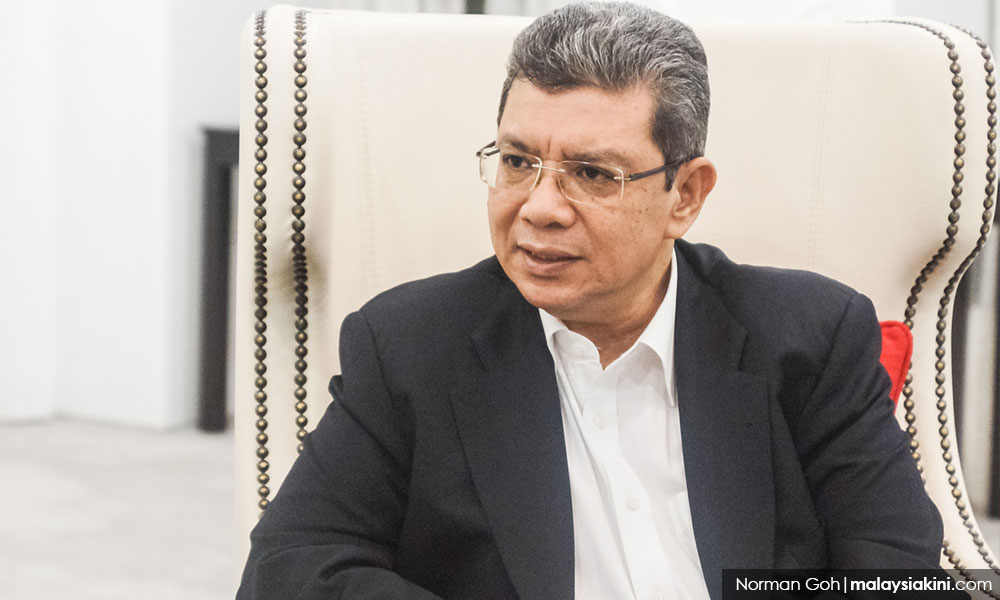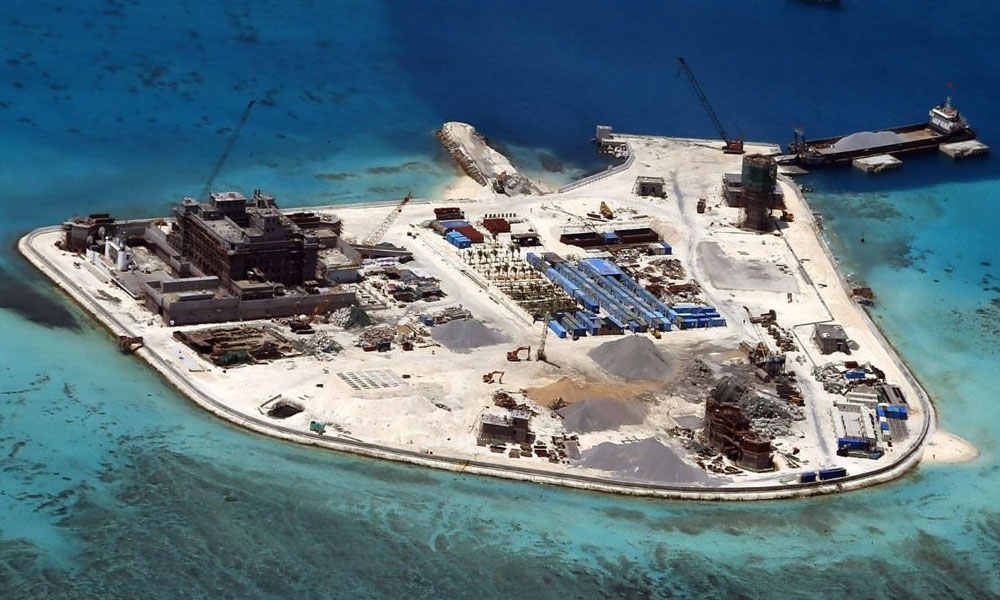
Prime Minister Dr Mahathir Mohamad's upcoming trip to China next month is expected to address issues beyond re-negotiating agreements for megaprojects signed with the previous BN administration.
In his first official media interview, Foreign Minister Saifuddin Abdullah said this was in line with Mahathir's status, not only as Malaysia's prime minister, but also a highly respected world leader.
"To most people, they may think that the main reason for the visit is about ECRL (the East Coast Rail Link) and the other megaprojects where the previous government have entered into contracts with China.
"But I believe Dr Mahathir is not just the prime minister of Malaysia.
"He is also highly regarded as a leader in this region," said Saifuddin during the interview on Wednesday at his office in Wisma Putra.
"Thus surely his trip to China is not just about China and Malaysia.
"I would like to think that his trip to China is about something bigger than that," said the Pakatan Harapan secretariat chief.
As part of Putrajaya's cost-cutting measures, Mahathir had announced the suspension of several megaprojects involving mainland Chinese firms.
The projects included the ECRL and two gas pipeline projects - the Multi-Product Pipeline (MPP) in Malacca valued at RM5.35 billion, and the RM4.06 billion Trans-Sabah Gas Pipeline (TSGP).

Asked whether Malaysia, in taking the measures, had concerns that it could now trigger strained ties with China, Saifuddin insisted both governments had reached an initial understanding that agreements for the megaprojects were "lopsided" and must be renegotiated to reach a fairer solution.
"Both sides also understand that the relationship between China and Malaysia goes back thousands of years.
"You can’t allow three or four projects to cause unwanted results," said Saifuddin, adding that the matter was also discussed in his own meeting with China's ambassador to Malaysia Bai Tian.
Ahead of his own trip to China, Mahathir had also sent former minister Daim Zainuddin as a "special envoy" to renegotiate loans and contracts signed during the previous BN administration.
Focus on trade war
Commenting further, Saifuddin said issues beyond Malaysia-China bilateral ties could include looking at how China's position among other global superpowers could have an impact on Malaysia and the Asian region.
"We understand China is facing a trade war with America. But the trade war is not just between US and China.
"The trade war is about global powers. So it is not A versus B. It is about international trade and investment, about the overall financial architecture…So it is a much bigger issue," he explained.
In that context, Saifuddin said Malaysia-China talks could look at identifying areas of cooperation between the two countries, while strengthening the region's position as a whole.
"So it is not about Malaysia and China pitting ourselves against another country.
"I think it is (in) the interest of all countries in the world to ensure trade is fair and trade is conducted out in a manner that brings beneficial results for people of all countries," he added.
Aside from trade ties, observers noted that Malaysia under Mahathir's leadership has also been outspoken on the issue of territorial disputes involving Beijing in the South China Sea.
Media reports indicated that Malaysia occupies at least five features in the disputed area of Spratly Islands, including a small naval presence in an area which falls within the "nine-dash line" that marks China’s claims in the South China Sea.

Last month, the South China Morning Post quoted Mahathir as saying that Malaysia wants to continue occupying the islands but at the same time will also not make any new claims for more islands.
"China claims the South China Sea is theirs, but those islands have always been regarded as ours for a long time. So we want to retain them.
"There are certain rocks which we have developed into islands. And we hope that we will stay on those islands, because it is a part of our keeping the sea safe from pirates and others," the Hong Kong-based publication quoted Mahathir as saying.
'No compromise on security'
Asked for comments on how Malaysia would establish its new more outspoken position with regards to the territorial dispute, Saifuddin said the government aims to take its fundamental non-alignment position to a higher level, without compromising on issues of security.
"As mentioned by the prime minister, security is an interest that involved everybody.
"But there are (several) ways of doing it," said Saifuddin, who pointed out that Mahathir had indicated Malaysia's aim of keeping the region peaceful without the presence of "big battleships" in the disputed areas.
"Even though he (Mahathir) did not explain in detail, but I think he is giving a very important signal that we are interested in keeping this region peaceful," Saifuddin further stressed.
Overall, Saifuddin said Malaysia has taken a position that all countries involved should be allowed to play their roles to resolve the dispute, but the roles must be well-defined and carried out in a manner where all parties are regarded as "equal partners" as opposed to one country emerging as a dominant force.
It was reported last month that China’s airforce had landed bombers on the disputed islands and reefs in the South China Sea as part of a training exercise, a move which triggered concerns in Vietnam and the Philippines.
Tensions escalated further when the United States sent warships to the area as part of "freedom of navigation" exercises.
Mahathir, in response, was quoted by South China Morning Post as saying that one way to keep the peace in the disputed areas was for the waters to be "patrolled by small boats" rather than warships, and that the smaller boats from Asean countries should be "equipped to deal with pirates, not to fight another war". - Mkini



No comments:
Post a Comment
Note: Only a member of this blog may post a comment.